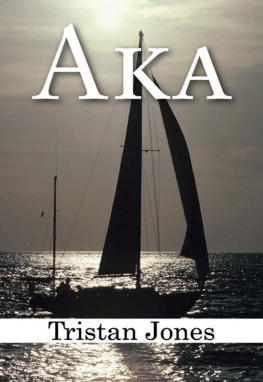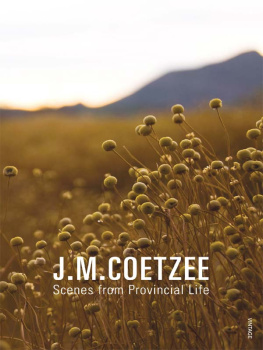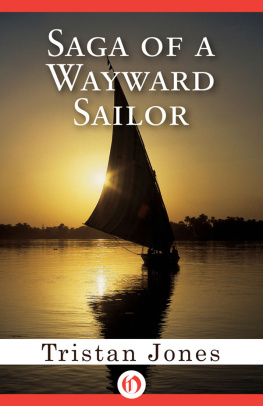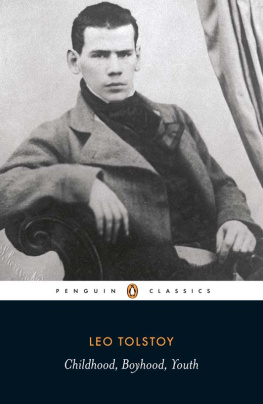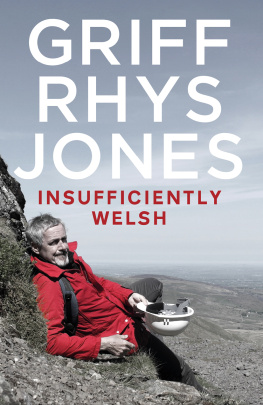EARLY BIRD BOOKS
FRESH EBOOK DEALS, DELIVERED DAILY
LOVE TO READ ?
LOVE GREAT SALES ?
GET FANTASTIC DEALS ON BESTSELLING EBOOKS
DELIVERED TO YOUR INBOX EVERY DAY!

A Steady Trade
A Boyhood At Sea
Tristan Jones
Dedicated to the Welsh and their descendants the world over, including the many in the Falkland Islands; and to my good friends Wally and Marie Herbert, Allan Gill, and Bernard Moitessier, explorers.
Acknowledgments
Many thanks to Joe Gribbins, editor of Nautical Quarterly, in which this tale first appeared in a much shorter form; to the members of the Atlantis Society, who gave me peace while I wrote this book; and to my agent, Richard Curtis, for his enthusiastic activities on my behalf.
August 1981-March 1982
New Orleans, St. Louis, Santa Barbara, San Francisco, London, Stratford-upon-Avon, Llandudno, Abermo, Aberytswyth, and New York
Foreword
During anyones life there are many experiences, emotions, and discoveries that are the common lot of many other people; there are others that, by the very nature of ones birth, upbringing, times, and circumstances, are shared with only a few others. Some events and encounters, strung together in a certain order, are one persons alone; they are what makes that person unique; they are what makes a life.
This book is the earliest in a series of fivesomeday to be eightvolumes about my life. Enjoy them all; if you can learn from them or laugh and cry with me, then my life shall have been made worth more. This added worth I shall accept gratefully.
Circumstances, too complex to go into here, drove me to write these books about my life out of their chronological order. The four volumes about the years from 1952 to 1977 were published between 1977 and 1981. They are about the deeds and misdeeds, the adventures and misadventures of my middle years. This book is about my boyhood and youth, about the forces that coiled my spring.
In offering these accounts of my life, I affirm my belief in everyones uniqueness. Without the recognition of each others individuality there can be no dignity. Without dignity there can be neither honor nor justice, and without honor and justice mankind will surely descend into the abyss.
Note: Some of the names of people, places, and ships in this story have been changed, to avoid embarrassment to people who may still live, or to their relatives and friends.
Cas gwr ni char y wlad ai maco.
(Cursed is the man who loves, not the land that raised him.)
Dafydd ap Gwilym, fourteenth-century Welsh poet
I
Boyhood
The force that through the green fuse drives the flower
Drives my green age; that blasts the roots of trees
Is my destroyer.
And I am dumb to tell the crooked rose
My youth is bent by the same wintry fever.
The force that drives the water through the rocks
Drives my red blood; that drives the mouthing streams
Turns mine to wax.
And I am dumb to mouth unto my veins
How at the mountain spring the same mouth sucks.
The hand that whirls the water in the pool
Stirs the quicksand; that ropes the blowing wind
Hauls my shroud sail.
And I am dumb to tell the hanging man
How of my clay is made the hangmans lime.
The lips of time leech to the fountain head;
Love drips and gathers, but the fallen blood
Shall calm her sores.
And I am dumb to tell a weathers wind
How time has ticked a heaven round the stars.
And I am dumb to tell the lovers tomb
How at my sheet goes the same crooked worm.
Dylan Thomas
The Force That Through the Green Fuse Drives the Flower
Llangareth
Theres almost always a westerly wind over Merioneth. On winter days its a wet west wind, whistling under clouds black and funereal, like a hundred hearses bringing back home the ghosts of the drowned sailors of Wales to weep over their mountains. The west wind sighs in from the Celtic Sea, driving before it a billion charging white horses, sending them smashing to their deaths on the shores of Gwynned. The escaped seas scoot frothing, eventually subsiding on the long sands of Tywyn. The west wind, insistent, tenacious, tendentious, scores the black, lonely peak of Cader Idris. Fat wool sheep bleat under the shelter of low walls built before Rome, old when the Norsemen were beaten back from them, well-mossed when the Normans flung up their grim, gray castles on the shores of Wales.
In the patched sunlit summer, though, with the wind tame and temperate, almost kind, the tiny hamlet of Llangaretha chapel, three cottages, and our housenestled, chimneys smoking, hidden in a little valley so green that the golden rocky outcrops of the Ffestiniog mountains looked from the heights to us children like the claws of an eagle outsplayed on well-brushed green baize.
Three miles up and down this valley my sister, Angharad, and I rode our pony, Caradoc. He was now so old that he needed no guidance but frequent rest as he clambered down to and from the brew, or hill, to the Barmouth-Harlech road, a narrow ribbon of sandy tar threading the ocher and emerald hollows along the coastal hinterland.
In 1935 I was almost eleven, Angharad was seven. She was attending the elementary school a few miles away. One of my jobs, now that I was grown, was to see that she met the rickety little bus that took her to and from the school. In the mornings, with Angharad safely onboard the bus, I waited for Rhys-the-Post, who, in his blue serge cape and double-peaked, flat-topped helmet with its great brass-horn badge, rode his pony, Powis, on the rural mail round winter and summer. On joyful occasions there would be a letter from my dad, far away in England, where God directed the railway lines and telegraph poles from Dolgellau. There, it was said, the folk were strange and many and did not know each others names. England, the homeland of Mister Jeffreys-Geography, our thin, bald-headed, bespectacled teacher, who spoke English so lispingly and strangely that only Educated Evans, the fat boy from Aran Fawddwy, could understand more than three words he said in any one sentence. England was


